6 Best Supplements to Keep Your Brain Young
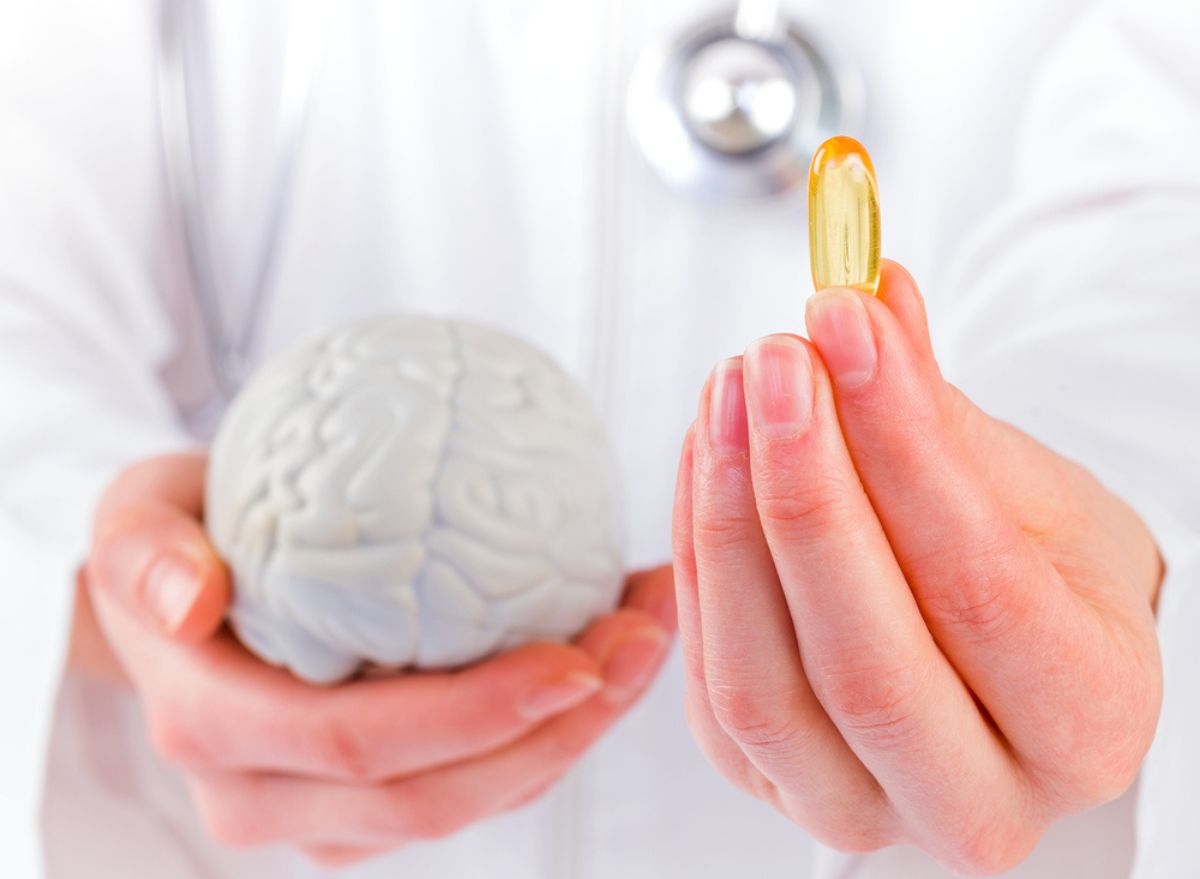
Looking to keep your noggin in a tip-top state? Before reaching for the jar of supplements, focus on maintaining healthy habits.
"Most people can keep their brains young and healthy by adopting some healthy lifestyle routines—no supplements required!" said Kim Yawitz, RD, a registered dietitian and gym owner. "Regular exercise, frequent mental stimulation, an active social life, adequate sleep, and a healthy diet go a long way toward helping you to stay mentally sharp with age," she says, adding that a lot of the nutrients that are commonly used as brain health supplements can be found in the Mediterranean diet—which has been linked with better cognitive function in older adults.
Still, Yawitz says supplements could be helpful if your diet falls short in certain vital nutrients. She does caution, however, that getting too much of some of these nutrients can do more harm than good. "For this reason, it's always best to check with your doctor before taking any new supplement."
"While all of these brain health supplements are great on their own, I wouldn't suggest taking all of them at once! Speak to your medical practitioner about which ones you should take," echoed Amy Gorin, MS, RDN, an inclusive plant-based dietitian in Stamford, CT, and owner of Plant Based with Amy. Gorin added that if you are pregnant or breastfeeding, you should discuss this with your doctor to determine which ones are safe for you. Read on for six supplements to consider for brain health.
Folate
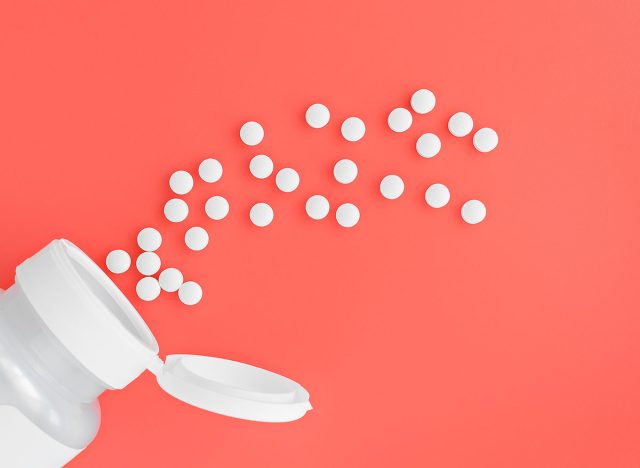
"Folate is a B vitamin that's thought to reduce systemic inflammation—a major risk factor for Alzheimer's disease and dementia," says Yawitz, pointing to a 2021 systematic review and meta-analysis in which adults with Alzheimer's disease were 88 percent more likely to be deficient in folate. "By contrast, those who regularly hit the recommended daily allowance for folate were 56 percent less likely to have Alzheimer's disease than those who didn't get enough," she added of the research.
"A folic acid supplement can help you cover your bases if you don't eat a lot of beef liver, leafy green veggies, whole grains, and other folate-rich foods—but more isn't necessarily better!" Yawitz says. (You can check out the 20 best folate-rich foods to learn more about dietary sources of the nutrient.) Again, don't overdo it with folate-rich foods or folate supplements: "Researchers don't know for sure if folic acid supplements improve brain health in adults who get enough vitamin B in the diet, and there's some evidence that getting too much folate could actually increase the risk of cognitive decline," according to Yawitz.
NOW Bacopa Extract
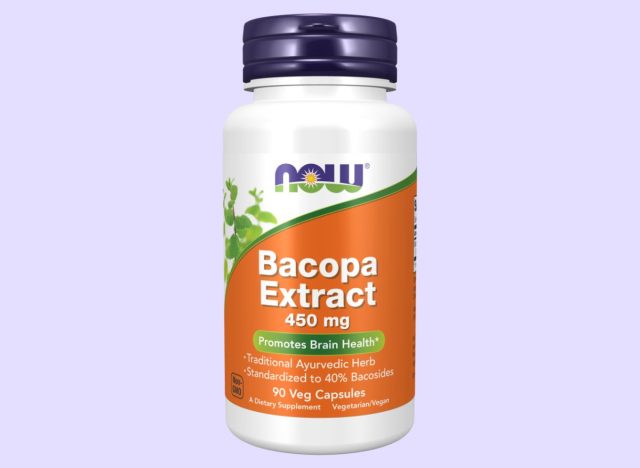
Gorin tells us that bacopa extract is a traditional Ayurvedic herb that can benefit the brain by helping the brain protect itself. "In one 2021 study in Journal of Functional Foods, researchers saw that twice-daily supplementation with bacopa extract benefitted emotional wellbeing," Gorin says, adding, "The suggested dose for this supplement is one veg capsule, which contains 450 mg bacopa extract. This is not something that you can easily get from food." Also known as bacopa monnieri, there are many reasons why dietitians call it one of the best supplements for dementia.
Metagenics Mag L-Threonate
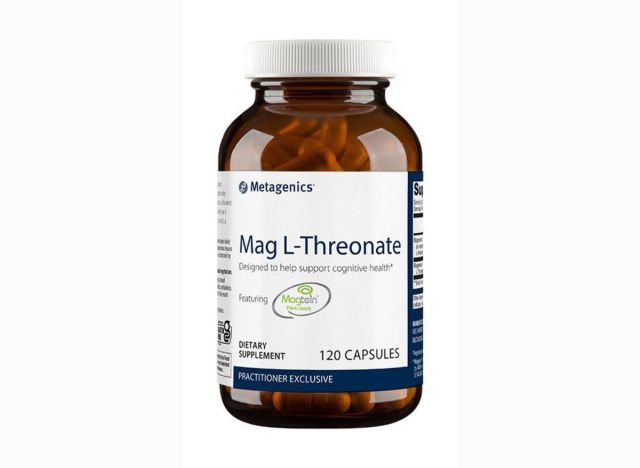
Another favorite of Gorin's is Mag L-Threonate, which she describes as "a really cool supplement because it's a specific type of magnesium that can help your memory and cognition." She points out that "it was discovered by MIT researchers, and research in Innovation in Aging suggests that it may help improve cognitive functioning in many patients." Gorin also notes that the suggested dose is two capsules and you cannot get this type of magnesium from food.
Fish oil
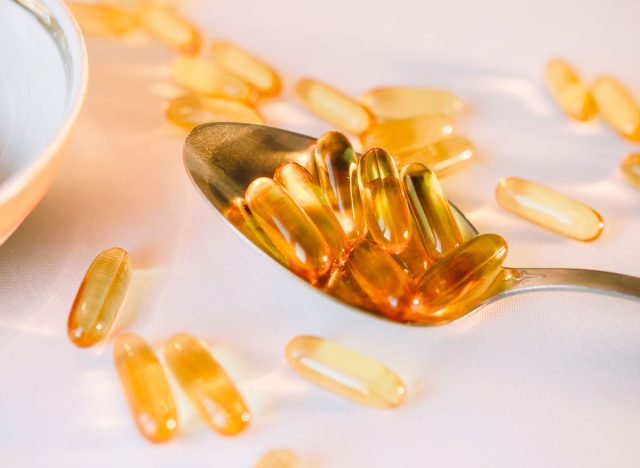
If you want to live a longer, healthier life, making fish oil part of your routine could be beneficial. "Fish oil contains EPA and DHA, which are omega-3 fatty acids that promote brain health," said Yawitz, highlighting one 2012 study in which "older adults with lower amounts of DHA in their blood had smaller brain volumes and performed significantly worse on cognitive tests than those with normal DHA levels, even without being diagnosed with dementia."
Yawitz also referred to another 2021 study including only octogenarians, which found that "those with the most EPA in their blood were 24 percent less likely to develop Alzheimer's disease and dementia than those with lower EPA levels." Nevertheless, Yawitz acknowledges that whether or not fish oil supplements support brain health is controversial. "Unless your doctor recommends taking fish oil, you can probably just eat fatty fish (like salmon) a couple of times per week."
Creatine monohydrate
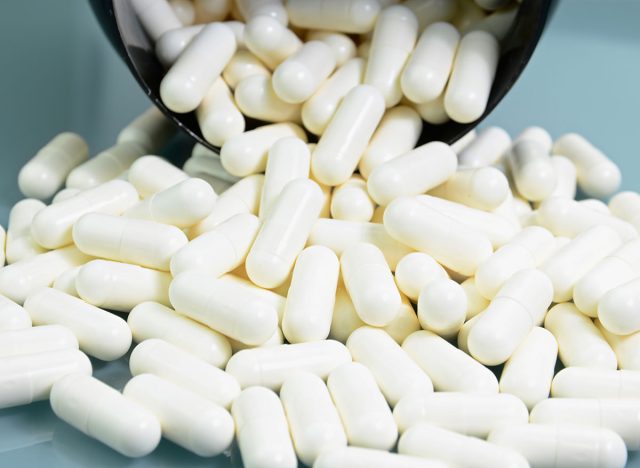
Gym rats have likely heard of this one, but others may want to look into this supplement, too. "Creatine monohydrate is a substance that helps the muscles and the brain generate more energy. It's a popular supplement among bodybuilders looking to put on some muscle, but some studies suggest it can also support brain health," Yawitz tells us. "The body makes some creatine, and omnivores can get more of it by eating animal proteins. But there's some evidence that creatine levels decrease with age and that creatine from the diet doesn't significantly impact the amount of creatine in the brain." The bottom line, Yawitz says, is that the research is currently mixed as to whether creatine supplements improve cognition, and researchers haven't identified an ideal dose for brain health. "But it does have a good track record in terms of safety and could be worth adding to your routine, especially if you lift weights," she adds.
One more thing to consider: "In a recent pilot study, older adults who took 5 grams of creatine per day had significant improvements in cognitive performance after 16 weeks," says Yawitz. "But there's a catch—the subjects in this study also performed resistance training exercises (something you should do anyway for a healthier brain!)."
Vitamin D
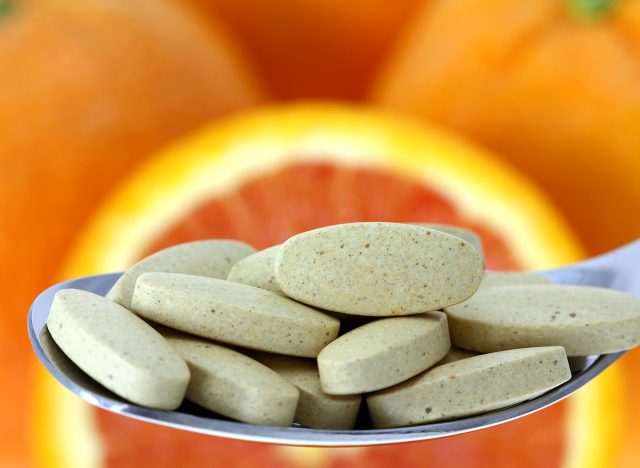
There are so many amazing benefits of vitamin D, and bolstering your noggin may be one of them. "Amyloid plaques are proteins that increase the risk of dementia and Alzheimer's disease when they accumulate in large amounts. Some studies suggest that vitamin D can support brain health by helping the immune system to remove amyloid plaque from the brain," Yawitz says.
"In a 2022 study, adults with vitamin D deficiency were about 54 percent more likely to have dementia compared to those with normal vitamin D levels. In fact, researchers in this study estimated that 17 percent of dementia cases could be prevented simply by giving supplements to those who are deficient in vitamin D," she says, adding that it's a good idea to have your doctor test your vitamin D levels to determine if they are low or not. "High-dose vitamin D supplements can cause health problems, especially if you already get enough vitamin D from sunlight or from dietary sources like egg yolks, fatty fish, and fortified milk and juice."









